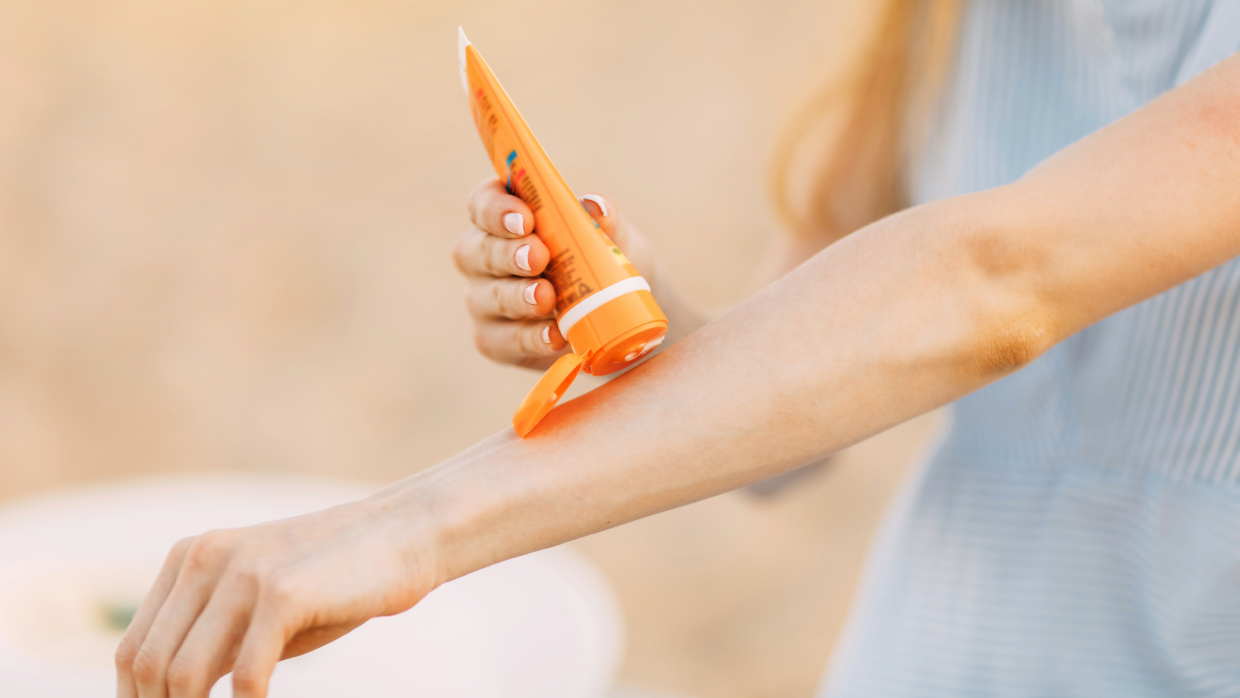By Amelia Rogers-Neubarth
During the summer months, especially in Florida, sunscreen is vital. However, teenagers don’t always understand the consequences and how important it really is. The skin is one of the most important organs of the body and damaging it, especially at such a young age, will hurt sooner or later.
Skin cancer is mostly caused by exposure to the sun for long periods of time. The skin becomes more damaged the longer exposed to the sun. Skin cancer is caused by overexposure to ultraviolet rays from the sun. Over time these rays can damage skin cells leading to sunburn and eventually developing into skin cancer, according to Cancer Research UK.
In teenagers the use of sunscreen is specifically important because all the sun intake now affects the future. Skin cancer doesn’t just appear overnight, it is something that develops over time. Sunscreen can help prevent this. Putting on sunscreen twenty minutes before sun exposure is recommended by the Cancer Council. The initial act of putting on sunscreen is great but making sure to reapply every two hours is key to protecting the skin, especially after leaving the water. Often teenagers that end up using sunscreen forget the need to reapply, which is still damaging their skin just not to as high of an extent. Sunscreen is also not just for the beach or pool as some teenagers may assume; it should be worn for all outdoor activities when the skin is overexposed to any kind of solar radiation.
Before exposing the body to the sun make sure to check the UV index to indicate what degree of sunscreen is needed for optimal protection. For example, when the UV is high, like an eight or higher SPF of no less than 50 is needed. Using an SPF of 50 already protects 98 percent of UV rays with SPF 100 blocking them entirely. SPF 30 is still a great option blocking 97 percent of rays but using anything much lower will start the journey to skin cancer if not used regularly and properly.
Traditionally lots of children, teenagers and even some adults complain they dislike sunscreen due to the sticky residue it leaves behind, or the feeling and texture on the skin. These all lead to not applying sunscreen simply because it is uncomfortable. For some who have more sensitive skin this may be worse and lead to skin cancer at a faster rate.
The American Academy of Dermatology recommends that all kids, regardless of their skin tone, wear sunscreen with an SPF of 30 or higher. Melanoma occurs in about three percent (1 in 33) for White people, 0.1 percent (1 in 1,000) for Black people, and 0.5 percent (1 in 200) for Hispanic people. The death rate for skin cancer is progressing at extreme rates. According to the Skin Foundation, more than two people die of skin cancer in the U.S every hour.
There are certain chemicals to be sure to stay away from when avoiding skin cancer. Some of these may include petroleum contained in personal care cosmetic items, formaldehyde found in building materials like plywood, insulation and paint, diazolyndinyl and coal tar in personal care such as lotions, makeup, and detergents, and benzene contained in gasoline, cigarette smoke, and industrial products. Some chemicals that sunscreen contain are harmful to the environment, hurting marine life as it washes off such as oxybenzone and octinoxate shared by Honolulu Civil Beat. These chemicals can raise the risk of developing melanoma skin cancers as well as even non-melanoma.
If absolutely chosen to not wear sunscreen at least consider protecting the face. The face is the most exposed to the sun and therefore needs stronger and more regular protection against skin damage, premature aging, and skin cancer. Sunscreen, when used on the face helps prevent large amounts of wrinkles in old age. Sunscreen is needed inevitably and is a real benefit to everyone of all ages. Protect the skin and stay away from skin cancer.
Graphic by Philip Berkwit





